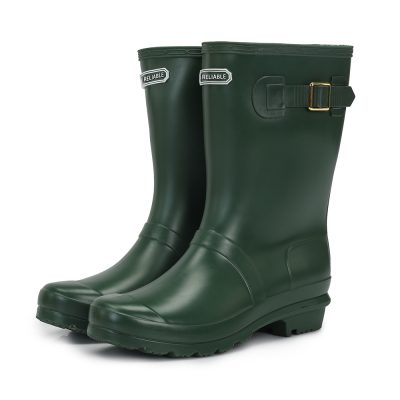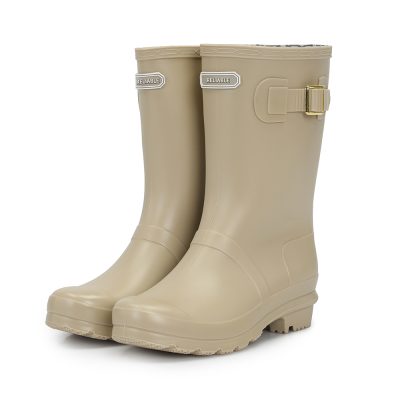Work rain boots offer versatile protection and performance across a wide range of industries and workplaces. Here’s how these boots benefit workers in different fields:
1. Agriculture and Farming
In agriculture, where workers are exposed to mud, water, and other environmental hazards, work rain boots are essential for keeping feet dry and protected. Whether tending to crops or caring for livestock, farmers rely on these boots to maintain comfort and productivity in challenging conditions.
2. Construction and Industrial Settings
Construction sites and industrial facilities often feature wet or slippery surfaces, posing significant safety risks for workers. Work rain boots with slip-resistant outsoles and reinforced construction provide essential protection against slips, falls, and workplace hazards, enhancing safety and productivity on the job.
3. Food Processing and Healthcare
In environments where hygiene and safety are paramount, such as food processing facilities and healthcare settings, work rain boots play a critical role in preventing contamination and maintaining cleanliness. These boots are designed to withstand exposure to water, chemicals, and sanitation processes, ensuring worker safety and regulatory compliance.
4. Outdoor Recreation and Leisure
Beyond the workplace, work rain boots are also popular for outdoor recreation and leisure activities. Whether hiking, fishing, or gardening, outdoor enthusiasts appreciate the waterproofing, traction, and durability offered by these boots, allowing them to enjoy nature without worrying about wet feet or slippery conditions.
Conclusion
Work rain boots offer versatile protection and performance across various industries and activities, from agriculture and construction to food processing and outdoor recreation. By providing essential protection against environmental hazards, enhancing safety and comfort, and ensuring regulatory compliance, these boots play a crucial role in keeping workers safe and productive in diverse work environments.















